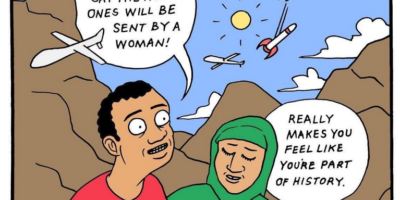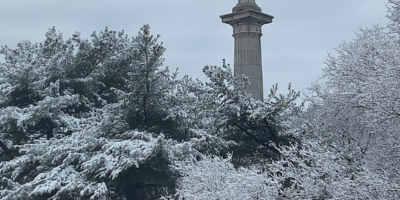By Danny Mayer
As a publicly-subsidized teacher at a community college, one of my primary job responsibilities (as I see it, at least) involves finding ways to connect what I do in the classroom to the larger public that I and my students daily inhabit. One way I do this is by inviting the public to participate in my classrooms, which I did last Fall while teaching a rock and roll documentary class.
This fall semester at Bluegrass Community and Technical College (BCTC), I once again invite the public (you) to my ENG 281 Introduction to Film course. Subtitled “The Sixties in documentary film,” the class will watch and talk about the 1960s, its people and movements, through the lens of documentary film. Your attendance, interest and knowledge is most welcome.
The Sixties are an interesting decade for film and history buffs. New camera technology that got developed and popularized throughout the decade allowed for fresh stylistic developments in cinematography and storytelling. Films like Don’t Look Back and Gimme Shelter aren’t just kickass rock documentaries (a genre born during the Sixties) covering two of the eras most famous cultural icons (Bob Dylan and the Rolling Stones). The two seminal works of cinéma vérité are also landmark texts in the historical study of film as an art form.
At the same time, the sheer amount of archived footage—all those ABC News Reports on black bus-riders or rowdy college students or anti-war army vets; the ubiquitous coverage of rock bands; small-budget production films by grad school hot shots influenced by the counter-culture; and 10, 20 and 40 year anniversary “remember when” interviews—has provided documentarians with a rich archive out of which to tell super-interesting stories. This has made the decade both knowable and not. The general story of the Sixties is well known: Woodstock Nation, a generation named after a three-day music festival taking place in 1969 on a farm in upstate New York, comes of age during the Civil Rights Movement and turns into lovable, politically active, culturally open pot-smoking rock fans who wear bell-bottoms and tie-dye shirts. Yet as a number of documentaries about the decade suggests, the archives themselves are not so clear cut, the decade’s more intimate stories playing tricks on the Woodstock narrative.
I’m interested in documentary films as usable pieces of our past, people’s histories, documents that stir us to bridge where we’ve been with where we are. My own particular interests, which will inform film selections, lie with the decade’s compelling stories of political, social and cultural upheaval. What did dissent look like in 1962 when poor black farmers and northern Jewish college kids on break from school worked across lines to demand an end to government endorsed racism? What was its voice? Its story? Its actors? Did it have a sound, a music? How did the Vietnam War permeate the decade’s second half? What subcultures emerged throughout the decade and why? How were they captured on film and presented to the public (us)?
Nuts and bolts
Each week from 5:00-7:45 in the spacious Owsley Auditorium located on BCTC’s lovely Cooper Campus, participants (you) will watch and discuss either a documentary film produced during the 1960s, or one taking some aspect of the decade as its central theme. For example, In the Year of the Pig, Emile de Antonio’s 1969 documentary on the origins of the Vietnam War, is both of the era and about the era. Other films, like 2007’s Following Sean by former Haight Ashbury resident Ralph Arlyck, may tell stories of the Sixties that leak into other decades. Still others, like 2005’s Sir! No Sir, recover forgotten public histories of the decade. Documentaries are generally over by 7:00.
After a small break following the viewing, , I will conclude by talking a little about what we just watched. You are welcome to attend and participate in the talk. My students should chime in at some point; maybe you’ll feel comfortable, too, adding to the dialogue. I may show brief context clips, provide background info and occasional “readings” of the film. There could be guest speakers or performers.
First film viewing is Thursday, August 18. To get it out of the way and also to enjoy the fine harmonies of Crosby, Stills and Nash, we will watch clips from the 1970 documentary Woodstock.
Second film viewing, Thursday, August 25, will be Berkeley in the Sixties, Mark Kitchell’s 1990 documentary that traces the entire decade through events taking place in Berkeley, California (home of the University of California system’s flagship school).
Parking sucks if you don’t have a UK Parking Pass, so bike on in or take a bus. Campus is just in front of Commonwealth Stadium. Your attendance and vocal participation is encouraged, but remember that this is also a classroom. Please exhibit appropriate classroom etiquette. No, I won’t assign you homework.



Leave a Reply